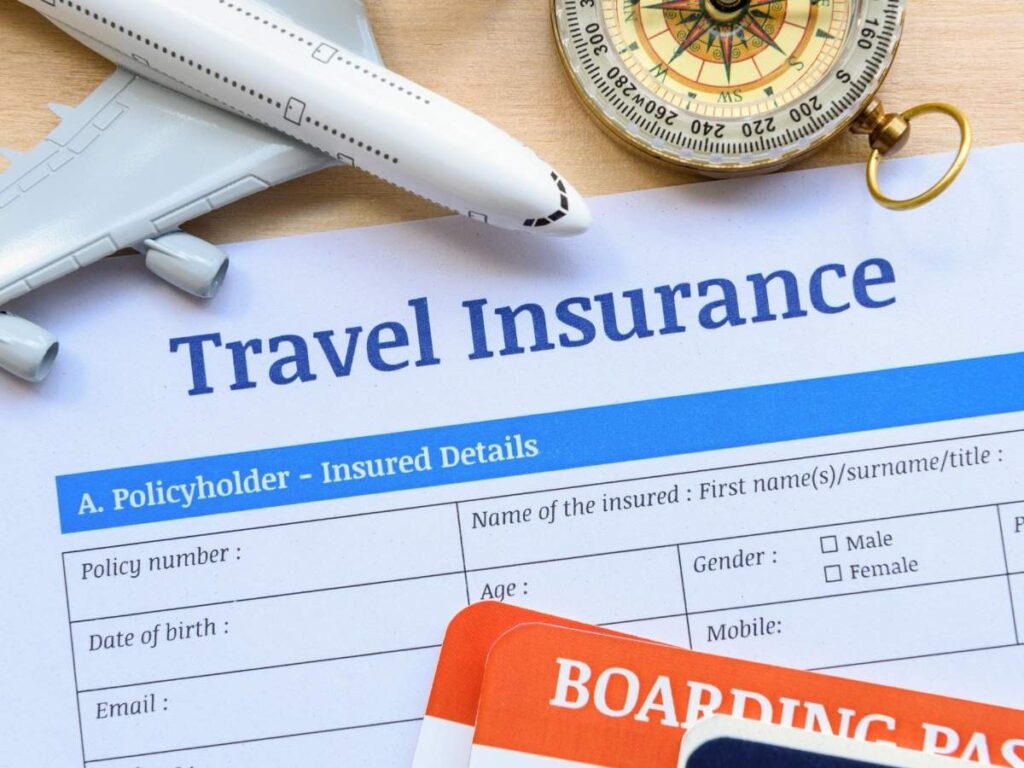Secure Your Adventures by Choose Travel Insurance

Travelling can be an incredibly exciting and rewarding experience. It allows you to explore new destinations, immerse yourself in different cultures, and create cherished memories that last a lifetime. However, amidst the joy and adventure, it’s crucial to acknowledge the potential risks and uncertainties that can accompany travel. To protect yourself and ensure peace of mind throughout your journeys, one essential consideration is opting for travel insurance.

Travel insurance acts as a safety net, providing financial protection and invaluable assistance that may arise during your trip. It offers coverage for a range of circumstances, including medical emergencies, trip cancellations, lost or delayed baggage, and more. By securing travel insurance, you can mitigate potential financial burdens, receive the necessary support, and focus on enjoying your travel experiences to the fullest.
The Importance of Travel Insurance
Travelling to new destinations involves a degree of uncertainty. Unexpected events such as accidents, illnesses, trip cancellations, or lost belongings can disrupt even the most meticulously planned trips. This is where travel insurance comes into play. It provides a crucial safety net that safeguards travellers from financial and logistical challenges during their journeys.
By opting for travel insurance, your clients can embark on their adventures with peace of mind. They can rest assured that they have protection against unforeseen circumstances, ensuring that their travel experiences remain positive and enjoyable.
What Does Travel Insurance Cover?

Travel insurance policies can vary, so it’s important to understand the coverage options. Here are some common types of travel insurance:
Trip Cancellation/Interruption Insurance:
This type of insurance provides coverage if your clients need to cancel or interrupt their trip due to covered reasons such as illness, injury, or unforeseen events. It typically reimburses non-refundable expenses like flights, accommodations, and tour costs.
Medical Expense Insurance:
Medical emergencies can happen anywhere, and this insurance covers the costs of medical treatment while travelling. It can include doctor visits, hospital stays, medications, and emergency medical evacuations.
Baggage Insurance:
Losing luggage or having it delayed is a common travel inconvenience. Baggage insurance provides coverage for lost, stolen, or damaged luggage, as well as compensation for essential items if baggage is delayed.
Emergency Medical Evacuation Insurance:
In situations where your clients require emergency medical transportation to a suitable medical facility, this insurance covers the costs of evacuation by air ambulance or other means.
Travel Delay Insurance:
Delays happen, and this insurance can provide reimbursement for additional expenses incurred due to travel delays, such as meals and accommodations.
Accidental Death and Dismemberment Insurance:
This insurance provides coverage in the unfortunate event of accidental death or dismemberment that occurs during the trip.
Rental Car Insurance:
If your clients plan to rent a car during their trip, rental car insurance can provide coverage for damages or theft of the rental vehicle.
These are just a few examples of the types of travel insurance available. It’s essential to review the specific coverage details and exclusions of each policy to ensure it aligns with your client’s needs and travel plans.
Evaluating the Risks
To determine whether travel insurance is necessary for your clients, it’s crucial to evaluate the specific risks associated with their travel plans. Consider the following factors:
Destination: Some destinations may have higher risks of theft, natural disasters, or political instability. Assess the safety and security conditions of the intended location to gauge the need for travel insurance.
Duration of Trip: Longer trips generally have a higher likelihood of encountering unexpected events. The longer your clients’ trips, the more essential travel insurance becomes.
Activities and Adventure: If your clients plan to engage in adventurous activities like hiking, scuba diving, or skiing, travel insurance that covers medical emergencies resulting from these activities is highly recommended.
Pre-existing Medical Conditions: Travel insurance can provide coverage for pre-existing medical conditions, ensuring your clients receive the necessary medical attention during their trip.
FAQs
The cost of travel insurance varies depending on factors such as the traveller’s age, destination, trip duration, and coverage limits. It is advisable to compare quotes from different insurance providers to find the best coverage at a reasonable price.
Some travel insurance policies offer coverage for trip cancellations due to COVID-19-related reasons such as illness, travel restrictions, or quarantine requirements. It’s important to carefully review the policy terms and conditions to understand the extent of COVID-19 coverage.
While it’s generally recommended to purchase travel insurance soon after booking your trip, some insurance providers offer the option to buy coverage even if you’ve already made your travel arrangements. However, certain coverages such as trip cancellation may have specific eligibility requirements regarding the timing of insurance purchase.
Not all travel insurance policies cover high-risk adventure activities. If your clients plan to participate in such activities, ensure that their insurance policy explicitly includes coverage for those specific activities.
Yes, travel insurance can provide assistance and support in case of lost passports or travel documents. It can help cover the expenses associated with obtaining replacements and provide guidance on the necessary steps to take.
In conclusion, the question of whether you should opt for travel insurance is a resounding “yes.” Travel insurance is an invaluable asset that protects you from the uncertainties and potential financial burdens that can arise during your journeys. As a travel agent, understanding the importance of travel insurance and being well-versed in its various aspects allows you to provide expert guidance to your clients.
By evaluating the risks, comprehending the coverage options, and answering your clients’ questions, you can assist them in making informed decisions about travel insurance. Prioritizing safety, financial protection, and peace of mind will ensure that your clients can embark on their travel adventures with confidence. So, should you opt for travel insurance? When it comes to protecting yourself and ensuring a worry-free travel experience, travel insurance is an essential consideration.